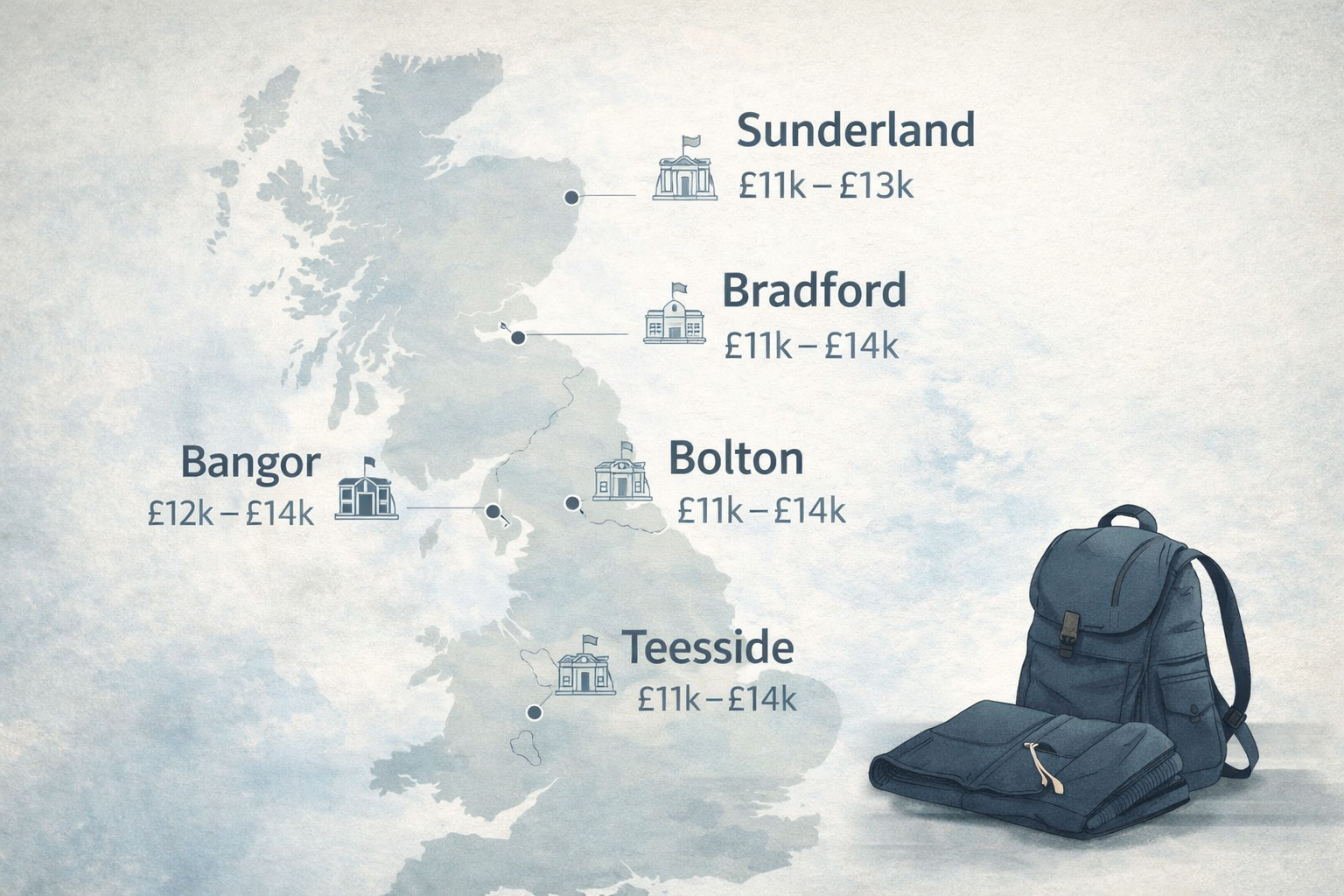Ever wondered why some people seem naturally drawn to helping others navigate life’s messiest moments? That magnetic pull toward social justice, advocacy, and human connection isn’t just personality—it’s often the first sign you’re meant for social work. And if you’re reading this, chances are you’ve already felt that tug.
But here’s the thing nobody tells you upfront: wanting to help isn’t enough anymore. The field has evolved dramatically, and today’s social workers need serious credentials to make a real difference. That’s where a masters in social work UK becomes your gateway—not just to a career, but to actually changing lives (including your own).
Why the UK Has Become Social Work’s Hidden Goldmine
Let me be blunt: the UK doesn’t just offer social work degrees—it offers a complete reimagining of what social work can be. While other countries treat social work education as an afterthought, British universities have transformed it into something resembling a medical degree in its rigor and respect.
UK’s MA Social Work master’s courses enable you to qualify as a social worker and apply to register with Social Work England, but that’s just the beginning. What makes studying here genuinely different is the integration of theory with brutal real-world practice. You’re not just learning about child protection policies—you’re sitting in actual case conferences, making decisions that affect real families.
The rankings have been particularly interesting this year, with some universities making significant moves. But rankings only tell part of the story when it comes to finding the right masters in social work UK program for your specific goals.

The Landscape Just Shifted (And Nobody Saw It Coming)
Something fascinating happened in 2024 that changed everything: Social Work England overhauled their registration requirements. Suddenly, international students found themselves with better pathways to practice than ever before. Universities scrambled to update their programs, creating what I call the “sweet spot moment”—when supply hasn’t quite caught up with demand.
This means if you’re applying for masters in social work UK programs right now, you’re hitting a golden window. Universities are investing heavily in their social work departments, placements are more diverse than ever, and employers are actively hunting for international graduates.
Here’s what’s particularly clever about UK programs: they’ve figured out how to blend academic rigor with practical application in ways that American MSW programs still haven’t mastered. You’ll spend roughly 50% of your time in placements, but these aren’t the token internships you might expect. These are full-responsibility positions where you’re carrying actual caseloads under supervision.

The Universities That Actually Matter (Beyond the Rankings)
Let’s talk about where you should actually consider studying. The big names get all the attention, but some of the most innovative masters in social work UK programs are happening in unexpected places.
| University | Unique Strengths | International Fees (2025) | Something You Won’t Find Elsewhere |
| University of Manchester | Research powerhouse with cutting-edge practice labs | £26,500 | Virtual reality training for high-risk interventions |
| Kingston University | Strong industry connections in London | £18,500 | Guaranteed placement in your area of interest |
| University of Northampton | Innovative two-year intensive program | £16,200 | Embedded entrepreneurship modules for social enterprises |
| Middlesex University | Diverse cohorts with global perspectives | £17,800 | Partnership with Tavistock for psychodynamic approaches |
| University of East London | Strong community focus | £16,500 | Collaboration with NHS Foundation Trust |
But here’s where it gets interesting: some of the universities doing the most innovative work aren’t the ones dominating headlines. Take Edinburgh Napier, for instance. Their program has quietly become the go-to choice for people wanting to specialize in digital social work—think online therapy, virtual family support, and tech-enabled community building.
The Money Question (Because Someone Has to Ask)
International tuition for a masters in social work UK typically ranges from £15,000 to £28,000 per year. Yes, that’s significant money. But here’s the calculation most people miss: UK social work programs are typically two years, compared to the variable lengths elsewhere. More importantly, the employment rates are stunning.
The MSW programmes offered by these universities in the UK are some of the most sought-after, considering the learning experience they offer and the employability of the graduates upon completion. That “employability” translates to starting salaries that typically range from £28,000 to £40,000, with rapid progression potential.
What’s more intriguing is the hidden funding landscape. Beyond the obvious scholarships, there are placement stipends, research assistant positions, and something called “bursary stacking” where you can combine multiple small grants into substantial support. I’ve seen international students graduate with less debt than their UK counterparts through strategic application to these lesser-known funding streams. Check out the student finance options.
The Application Maze (And How to Navigate It Without Losing Your Mind)
Here’s where most people stumble: UK masters in social work UK applications aren’t just about grades. They’re about demonstrating something called “readiness for practice.” Universities want to see that you understand what you’re getting into—that you’ve thought deeply about the emotional toll, the ethical complexities, and the sheer unpredictability of the work.
Applicants must apply through the Universities and Colleges Admissions System (UCAS) and are encouraged to apply early (ie before the 26th January deadline) however we remain open for applications throughout most of the year. This UCAS requirement is crucial—direct applications to universities won’t be considered.
An MSW in the UK generally needs you to have a successfully completed undergraduate qualification and work experience in the field of social work. But “work experience” is interpreted more broadly than you might expect. Volunteering counts. Caring for family members counts. Even certain customer service roles can demonstrate the interpersonal skills they’re looking for.
The personal statement is where applications live or die. Forget the template approaches—admissions tutors can spot those from miles away. Instead, tell the story of a specific moment when you realized social work was your calling. Make it personal, make it real, and make it impossible to ignore.
What Nobody Tells You About Placements
Here’s the reality: your placement experience will make or break your entire program. UK universities have partnerships with everything from children’s services to mental health trusts to innovative social enterprises. The quality varies wildly, and the best placements go to students who understand the system.
The trick is to research your placement preferences before you even apply. Each university has different strengths in different areas. If you’re passionate about working with refugees, certain universities have established relationships with organizations like the British Red Cross. If you’re drawn to children’s services, others have direct pipelines into local authorities.
But here’s what’s particularly clever: some students are now creating their own placements. Universities are increasingly open to this, especially if you can demonstrate how your proposed placement meets their learning objectives. I’ve seen students create placements with tech startups working on social issues, with parliamentary offices focusing on social policy, and even with international NGOs.
The Skills Nobody Mentions (But Everyone Needs)
Technical competency is assumed now. Every masters in social work UK graduate needs to be comfortable with database management, report writing software, and basic data analysis. But the skills that actually differentiate successful social workers are more nuanced.
Crisis de-escalation isn’t just about knowing the theory—it’s about reading micro-expressions, managing your own anxiety, and making split-second decisions under pressure. Cultural competency isn’t just about understanding different backgrounds—it’s about recognizing your own biases and adapting your approach in real-time.
The programs doing this best are incorporating simulation-based learning. You’ll find yourself in carefully constructed scenarios where actors play family members, colleagues, or service users. It sounds artificial, but the feedback is incredibly valuable for building confidence before you’re working with real people facing real crises.
The Career Paths That Don’t Exist Yet
This is where it gets exciting. Social work is fragmenting into specializations that didn’t exist five years ago. Digital therapy coordination. Community resilience planning. Social policy analysis with AI integration. Corporate social responsibility consulting.
Your masters in social work UK isn’t just preparing you for traditional social work roles—it’s giving you the analytical, interpersonal, and ethical framework to innovate in areas that are still being defined.
Some of the most successful recent graduates are working in roles that combine social work principles with other fields. There’s a growing demand for people who understand both social work and technology, social work and business, social work and policy development.
The Support Network You Didn’t Know You Needed
UK universities have figured out something that many other systems haven’t: social work students need more support than most graduate students. The emotional toll of the work starts during your studies, not after you graduate.

Most programs now include mandatory supervision sessions, peer support groups, and access to counseling services. But the informal support networks are often more valuable. Your cohort becomes your professional family—these are people who understand the unique challenges of the work and who you’ll likely collaborate with throughout your career.
If you’re an international student, this support becomes even more crucial. The cultural adaptation combined with the emotional intensity of social work training can be overwhelming. Universities like GCRD Hub, based at 107-111 Fleet Street in London, specialize in providing tailored academic placement support specifically for international students navigating this complexity. Their end-to-end admissions support and pre-departure orientation can be the difference between struggling through your first year and thriving from day one.
The Skills Gap Nobody’s Talking About
Here’s something that might surprise you: the biggest skills gap in UK social work isn’t in traditional areas like case management or assessment. It’s in evaluation and evidence-based practice. The field is moving rapidly toward demonstrating outcomes and measuring impact, but many programs haven’t caught up.
| Skill Area | Current Demand | University Coverage | Your Opportunity |
| Data Analysis | High | Inconsistent | Self-study analytics tools |
| Digital Therapy Platforms | Rapidly Growing | Minimal | Seek specialized placements |
| Community Organizing | Stable | Good | Build on existing strengths |
| Policy Analysis | Increasing | Variable | Connect with think tanks |
| Financial Literacy Training | Emerging | Poor | Develop niche expertise |
The smart move is to identify these gaps early and build complementary skills alongside your formal education. Take online courses in data visualization. Volunteer with organizations using innovative approaches. Attend policy forums. Your masters in social work UK gives you the foundation, but the specialized skills you develop independently will set you apart.

The Hidden Costs (And How to Manage Them)
Beyond tuition, studying for a masters in social work UK comes with costs that catch people off guard. Professional registration fees. Enhanced DBS checks. Travel to placement sites. Professional clothing for court appearances and formal meetings.
But here’s what’s frustrating: these costs aren’t usually included in university cost-of-living estimates. Budget an extra £2,000-£3,000 per year for these professional expenses. Some universities offer hardship funds specifically for these costs, but you need to apply early and often.
The smarter approach is to build these costs into your funding applications from the beginning. Many scholarship applications ask about additional costs associated with your program—this is your opportunity to demonstrate that you understand the full financial commitment.
The International Perspective Advantage
Not that being an international student in any of the UK social work programs is all about a degree; it is rather having a special flavour to enhance the experience of the UK employers who are going through a bad time in this respect. With an increasing number of diverse communities, social work agencies are more than willing to find individuals that are knowledgeable of various cultural backgrounds and are able to work within a diverse immigrant population.
Being international will also count as a professional attribute, which is not merely a personal trait. Their particular point of view also opens career doors to specialized work in the field of refugee services, international adoption, or cross-cultural family work to many of the students.
Making the Decision: Your Next Steps
By this time, you might be already serious about getting a masters in social work in the UK. The crucial dates are application deadline which most of the programs use UCAS whilst the deadline is usually in late January even though some universities use ongoing application intake.
Start with research. Not just university websites, but current student blogs, social media groups, and professional networks. Reach out to current students and recent graduates. Ask hard questions about placement quality, support systems, and career outcomes.
It may be important that you contact organizations such as GCRD Hub (+44 7756 428968)) at an early stage of your planning. Using their custom academic placement service, they may be able to explain to you the programs that would best suit to your particular career plans and situations. They can also assist you in getting a better round-up of the funding scope that is possible through their scholarship and financial support. So, contact us.
The Future of Social Work Starts Here
There is a turning point in social work. New technologies, transforming demographics, and new knowledge about trauma and resilience are refuting traditional approaches. The programs in social work UK that are succeeding are the ones that are not against this change but one that accepts it.
Choosing to do this qualification is not only about adding yourself to a profession, but it is also about putting yourself at the centre of social change. The training you get, the contacts you make, and the experience you will have will be of use irrespective of the destination your career takes you.
UK has designed something special by organizing the way it educates on social work. It is not stiff but it is tough, it is not only practical; it does not lose track of the larger view; and it is cosmopolitan, and yet so firmly embedded in the needs of the community.
Whether you should study masters in social work UK is not the question, it is whether you are capable of handling the rushes, accepting the hurdles, and entering the line of profession that would always request you to advance.
The deadlines of applications are near. There is competition in the programs. The task is laborious.
A masters in social work UK is not merely a degree, it is a change, but only to the right individual, prepared correctly and assisted when required.

Frequently Asked Questions
Q: What is the duration of the Masters in Social Work in UK?
A: The majority of programmes in the UK are two years long full-time (it is possible to find 18 months programmes available to students who have relevant experience or a degree).
Q: Do international students have an option to work during studies?
A: International students are able to do this in principle (at least 20 hours a week during term time), although the work load involved in social work placements might restrict real opportunities.
Q: What does MA Social Working vs. MSW mean?
A: They both allow you to be registered to Social Work England. In the UK, MA Social Work is predominant whereas MSW is used in the US; many colleges and universities in the UK are interchangeably using both terms.
Q: Do I require a work experience to applicate?
A: Applicable experience is not a must do but it consumes strength to your application. This could mean paid employment, volunteering or care.
Q: Do you have any scholarships to international students?
A: Yes international scholarships are provided by lots of universities, there are outside sources of funding. The GCRD Hub is a group organization that can guide through the opportunities of scholarships.
Q: Is it necessary to do UCAS?
A: Right, the majority of UK social work programs will involve UCAS applications. Strict applications to universities will rarely be taken into account.





